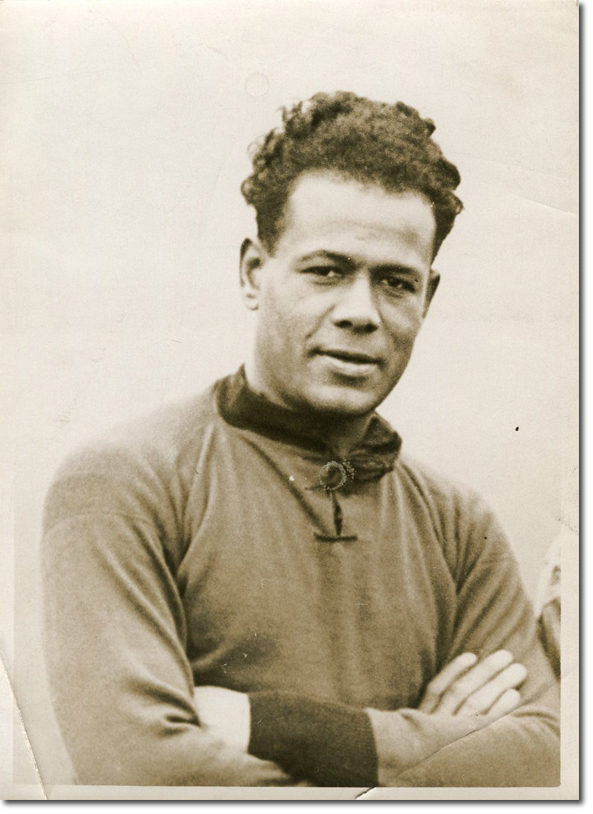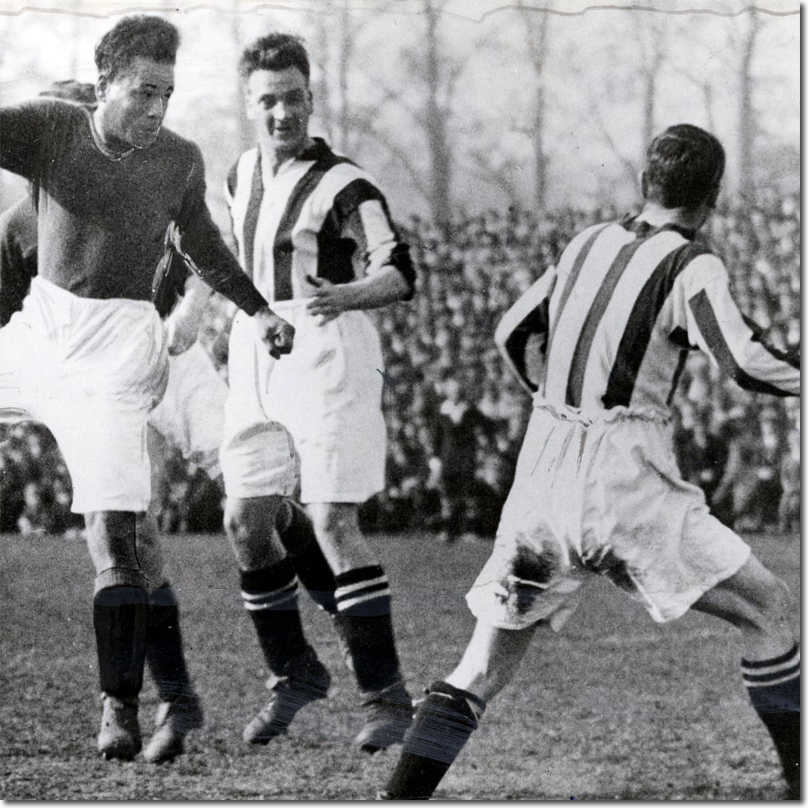|
|


|
|
Jack Leslie was born on 17 August 1901 at 65 Clifton Road, Canning Town, London, the son of John Francis Leslie, a Jamaican labourer at a local gasworks, and his wife, Annie, née Regler. Little is known of his early life, except that he developed both a passion and a talent for football.
Playing inside left as a youth for the local amateurs Barking Town FC, in 1921 Leslie was spotted by Plymouth Argyle, then in Football League division three (south). In his first two seasons at the club—where the future Labour Party leader Michael Foot was a keen supporter—he struggled to win a regular first team place, playing only sixteen games and scoring just three goals. The 1923–4 season saw him play seventeen games and score two goals. When the Scottish left-winger Sammy Black joined Argyle in 1924 Leslie found the perfect outlet for his passing skills. The following season he was virtually ever-present. After he had built himself a reputation as a skilful inside forward with an aptitude for supplying good passes out to Black and a strong, accurate shot, a sustained period of success followed in which he played and scored regularly. Between them Leslie and Black scored 320 goals, Black topping the club's all-time scorers' list, with Leslie fourth. As a team, Plymouth Argyle finished runners-up for six consecutive seasons between 1921 and 1927 and were eventually promoted to division two in 1930. In his second season at the higher level Leslie's scoring average was almost one in two (twenty-one goals in forty-three games). Opposition included Tottenham Hotspur, Arsenal, and Manchester United. Leslie's consistent form did not go unnoticed. During the 1931–2 season he was informed by his manager, Bob Jack, that he had been selected for England. In some accounts a scout then came down from London to watch him; in others, information was passed to the Football Association. When the newspapers printed details of the squad some days later Leslie found that he had been replaced by Billy Walker of Aston Villa. 'They must have forgot I was a coloured boy', Leslie told the journalist Brian Woolnough half a century later. That season he also played against another black, mixed-heritage professional footballer, Eddie Parris, of Bradford Park Avenue, who was selected to play for Wales. Racist abuse was a consistent experience throughout Leslie's playing career. Shamefully newspapers tended to ignore the problem and referred to it in coded terms, saying that Leslie was the object of 'unwarranted attention' or 'the target of the crowd's interest'. In an interview with the Daily Mail in 1978 Leslie recalled, 'I used to get a lot of abuse in matches: “here darkie, I'm gonna break your leg”' (Inside Out). His daughter felt that 'he had a lot of disappointments because of his colour'. Just over a decade after Leslie's greatest disappointment the Anglo-Chinese footballer Hong Ying (Frank) Soo became the first man of colour to play for England, in an ‘unofficial’ wartime international. It was not until 1978 that Viv Anderson became the first black man to play for England in a peacetime international. On 27 June 1925, at St Matthias' Church, Canning Town, Leslie married Lavinia Emma Garland (1899–1988), boxmaker, and daughter of William Alfred Garland, labourer. They had one daughter, Evelyn (b. 1927). He retired from professional football at the end of 1934 (having scored a total of 137 goals for Plymouth in 401 league and cup appearances), and was offered a job on the backroom staff at West Ham. Ironically their Boleyn Ground during this time was notorious for its racist abuse of black players. He also worked as a boilermaker. He died in a nursing home, Dene Holm House, in Northfleet, Kent, on 25 November 1988, of bronchopneumonia and renal failure, and was survived by his daughter, his wife having died earlier the same year. It is unfortunate that his career is often remembered more for the racism he received than the goals he scored, the skill he possessed, and the consistent form he displayed. by Phil Vasili |

|
Empire in Your Backyard: Plymouth Article | Significant Individuals
Armed Forces | Art and Culture | Articles | Biographies | Colonies | Discussion | Glossary | Home | Library | Links | Map Room | Sources and Media | Science and Technology | Search | Student Zone | Timelines | TV & Film | Wargames